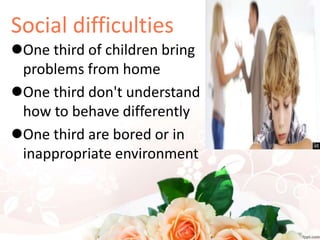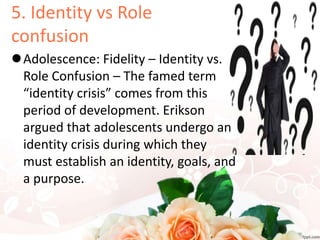Social development involves learning the skills to relate effectively to others. It is supported by modeling appropriate behavior, building problem-solving skills, encouraging exploration, and play. Peer interaction is important for language, cognitive, and social development from a young age. Both positive and negative peer relations can influence children's development. Positive relationships foster skills like cooperation, while negative ones like rejection can increase risks of issues like loneliness or depression.
















































